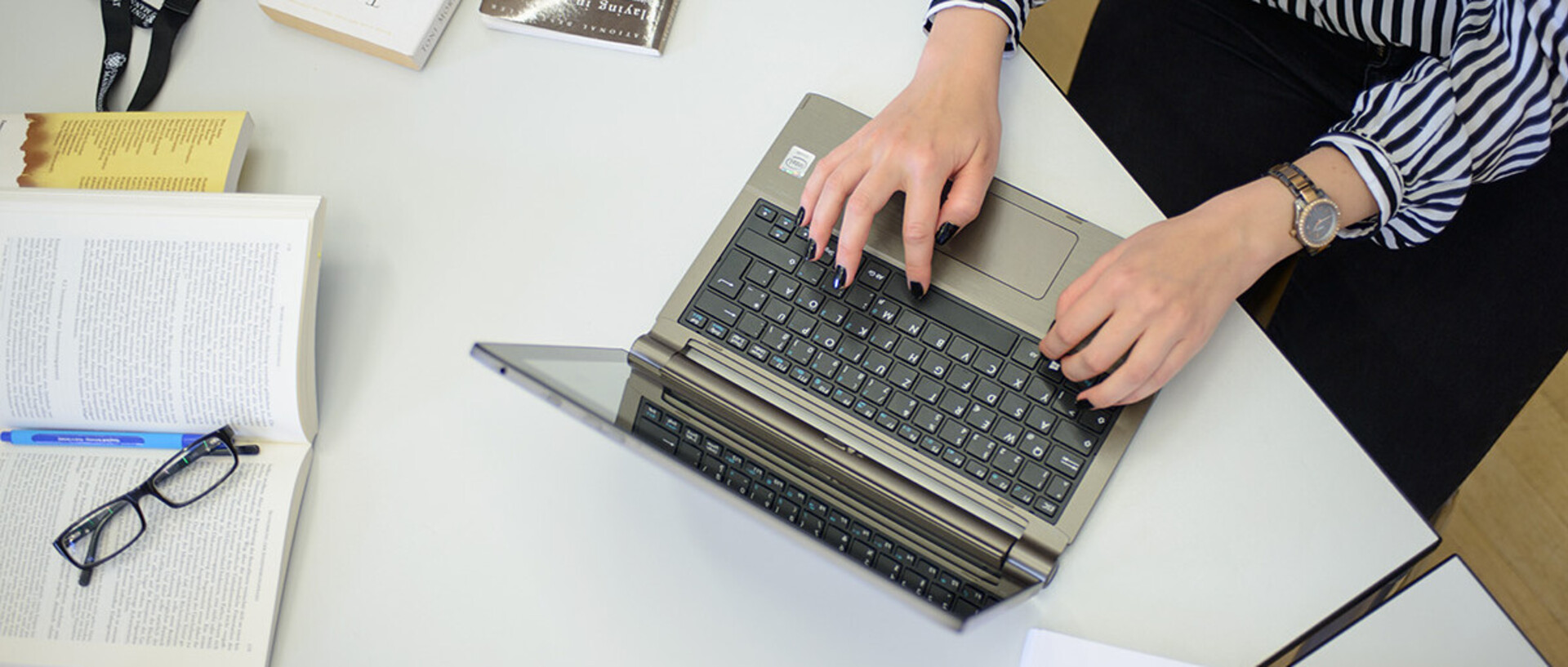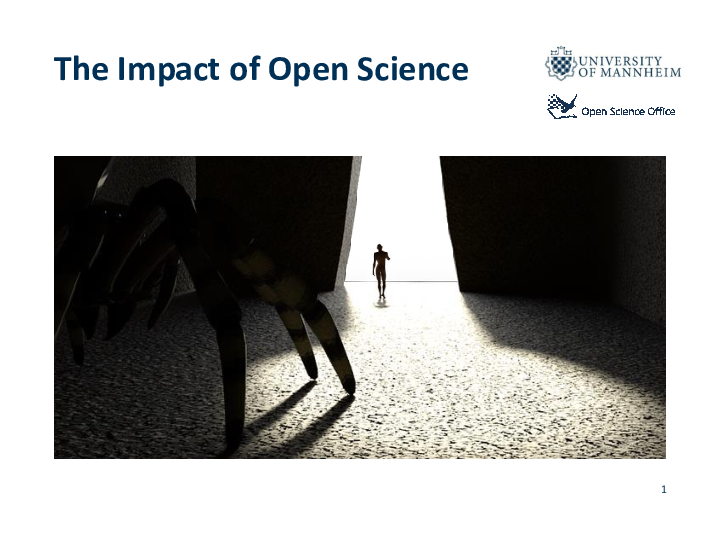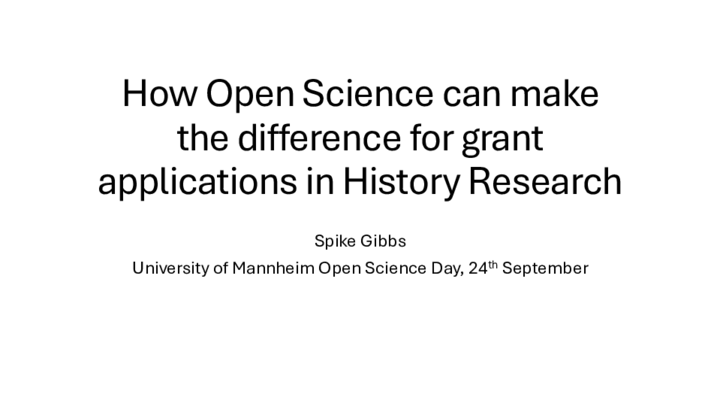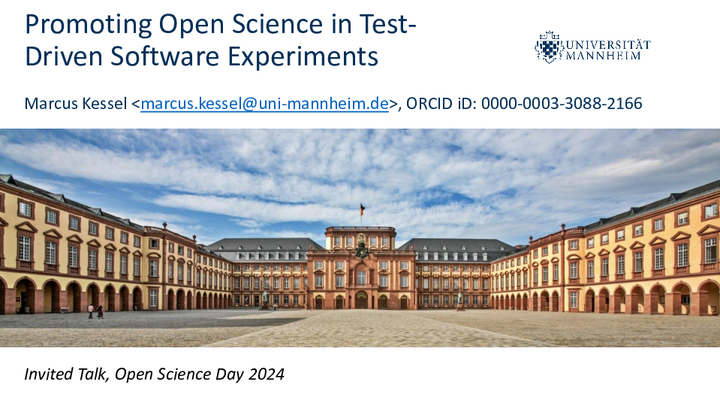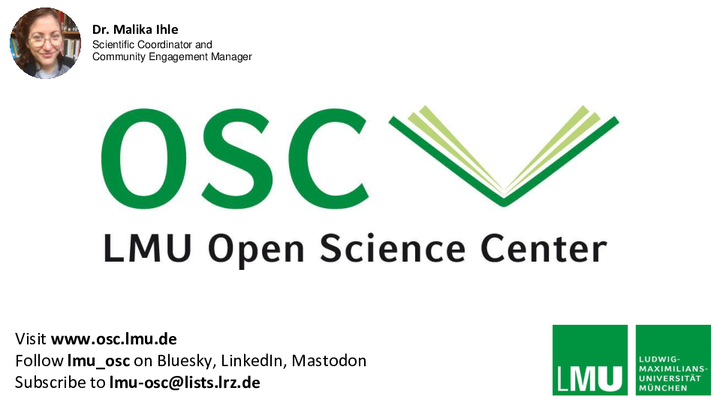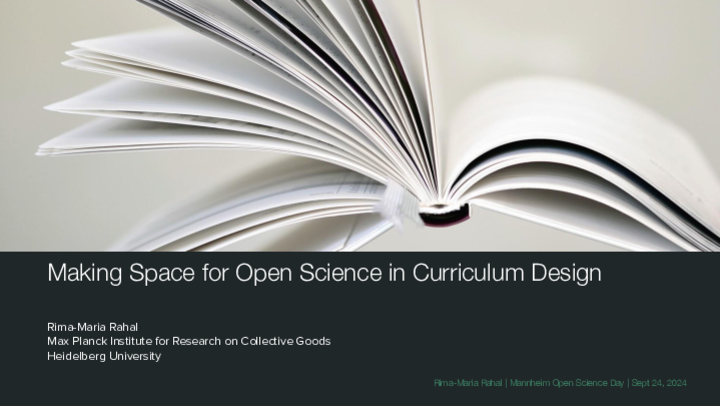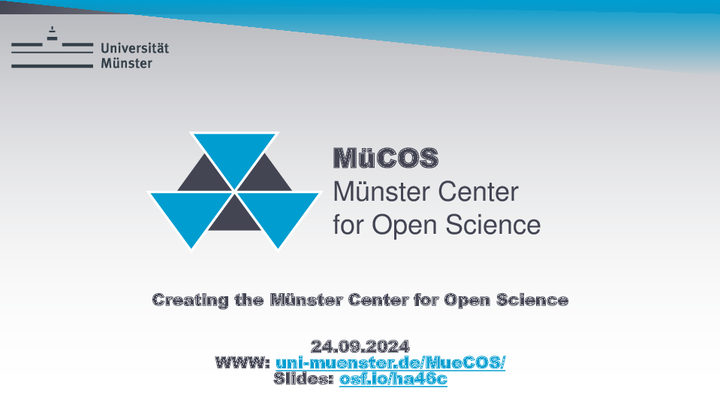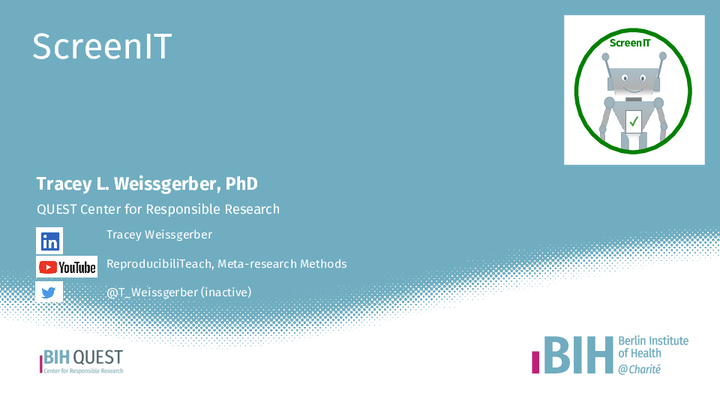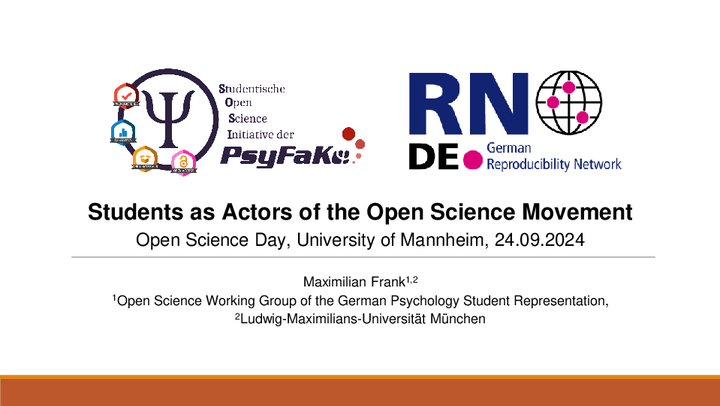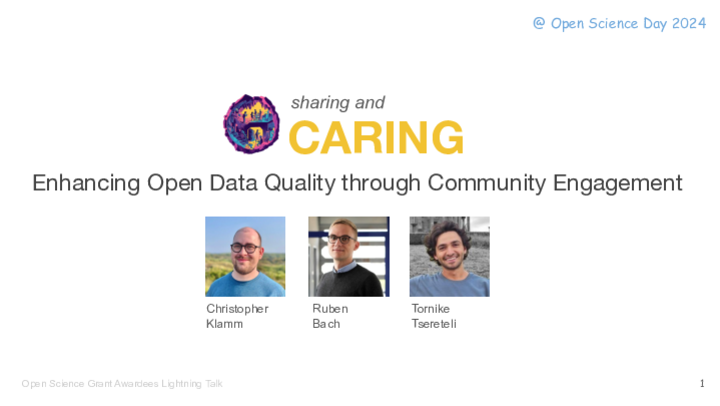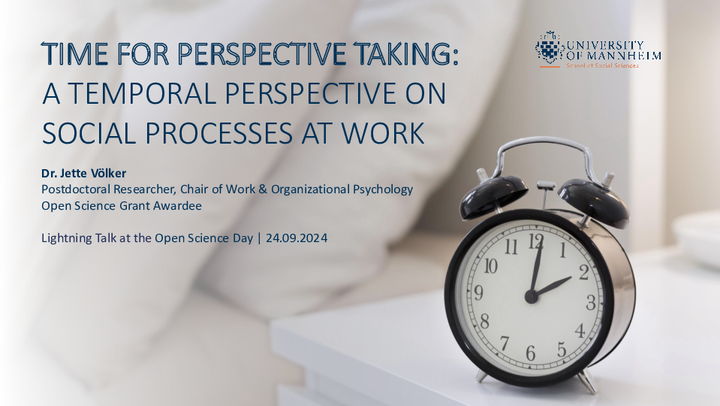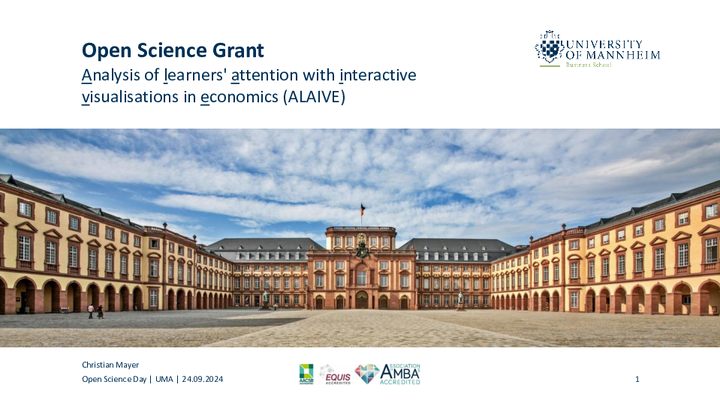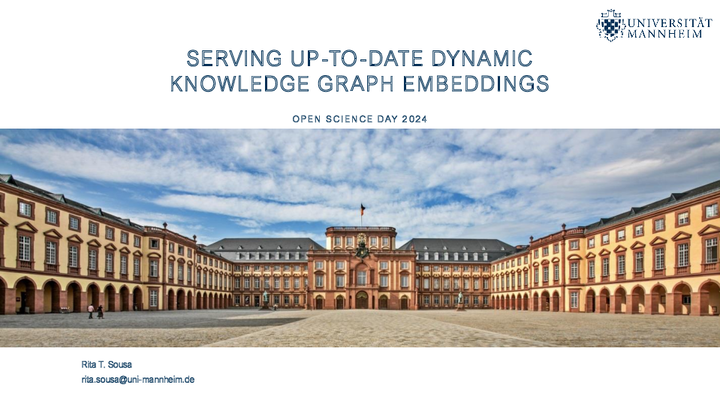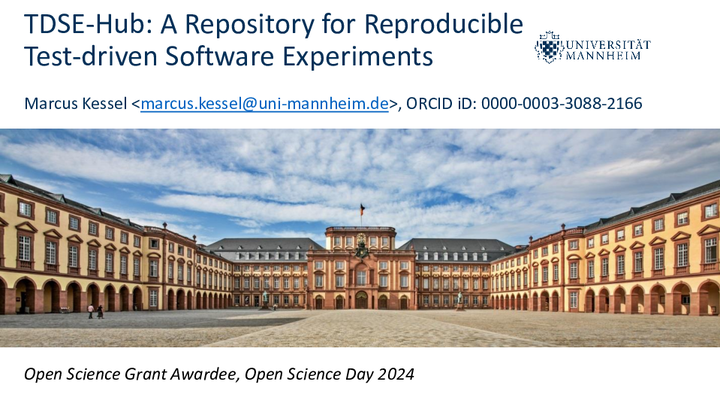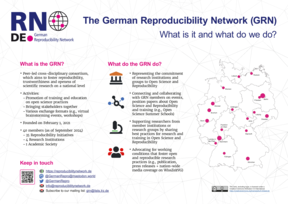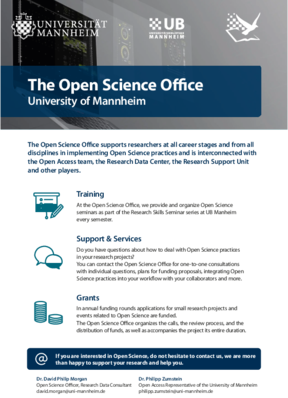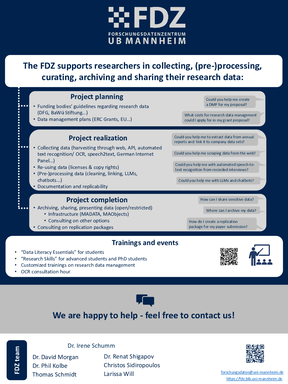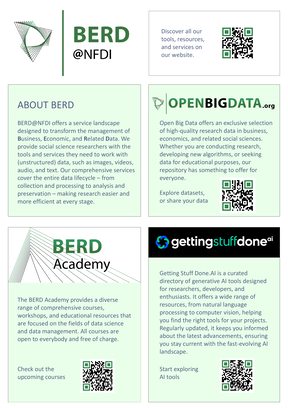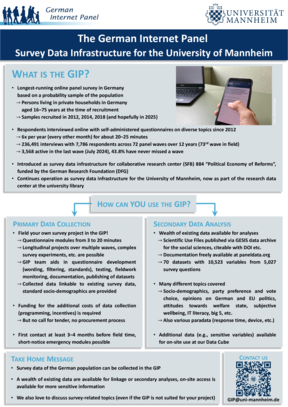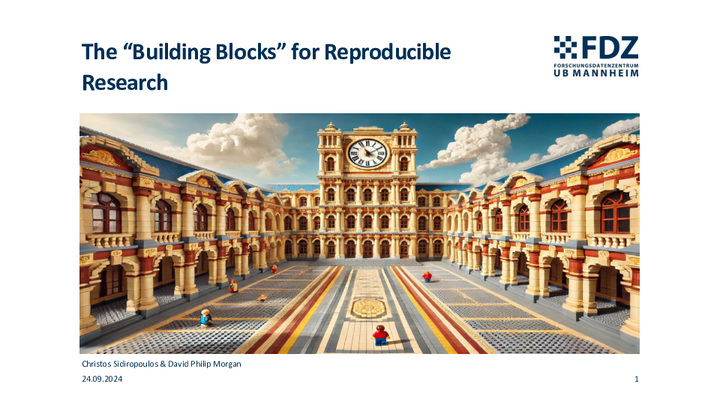Open Science Day 2024
Venue: Hybrid at FUCHS-Festsaal (O138), Schloss Schneckenhof, University of Mannheim and via Zoom
Date: 24 September, 11 a.m.–4 p.m.
Contact: Dr. David Philip Morgan, Dr. Philipp Zumstein
We are pleased to announce that the 6th annual Mannheim Open Science Day on 24 September 2024. The Open Science Day is a fantastic opportunity to showcase, share and discuss the diverse array of Open Science activities and experiences taking place at the University of Mannheim and beyond.
This year our Open Science Day will feature Best Practices in Open Science from researchers at the University of Mannheim including Open Science implementations in Economic History, Software Engineering and the value of connecting research with society. Additionally, we will also feature lightning talks from our newest Open Science Grant 2024 awardees and national efforts to improve Open Science and reproducibility from members of the German Reproducibility Network.
All members and researchers of the University of Mannheim and beyond are invited to join our Open Science Day.
Program
Session 1: 11 a.m.–12:30 p.m.
Welcome
Prof. Henning Hillmann, Ph.D.
Vice President for Research and Early-Stage Researchers, University of Mannheim
Deputy University Librarian and Head of the Acquisition and Cataloging Department, University of Mannheim
Open Science Office
The Impact of Open Science on Research and Society
Open Science Office, University of Mannheim
Slides (PDF, 1.21 MB)
Open Science at the University of Mannheim
How Open Science can make the difference for grant applications in History Research
Junior Professorship for Economic History of the Middle Ages, University of Mannheim
Slides (PDF, 142 KB)
Promoting Open Science in Test-Driven Software Experiments
Postdoctoral Researcher, Chair of Software Engineering, University of Mannheim
Slides (PDF, 896 KB)
Breaking Out of the Academic Bubble: Challenges and Experiences from Research on Migration, Integration and Racism
Chair of General Sociology, University of Mannheim
Lunch & Coffee Break: 12:30–1:15 p.m.
Session 2: 1:15–2:30 p.m.
German Reproducibility Network Member Lightning Talks
LMU Open Science Centre – from local to systemic implementation: embedding open research in institutional practices
Open Science Center, LMU Munich
Slides (PDF, 1.08 MB)
Making Space for Open Science in Curriculum Design
Max Planck Institute for Research on Collective Goods
Slides (PDF, 786 KB)
Creating the Münster Center for Open Science
Münster Center for Open Science (MüCOS), University of Münster
Slides (PDF, 805 KB)
Open Science Grant Awardees Lightning Talks
CARING: Enhancing Open Data Quality through Community Engagement
Data and Web Science Group, University of Mannheim
Slides (PDF, 613 KB)
Time for Perspective Taking: A Temporal Perspective on Social Processes at Work
Academic staff member, Chair of Work and Organizational Psychology, University of Mannheim
Slides (PDF, 700 KB)
Analysis of learners' attention with interactive visualisations in economics (ALAIVE)
Research Assistent, Chair of Economic and Business Education, University of Mannheim
Slides (PDF, 408 KB)
Serving up-to-date Dynamic Knowledge Graph Embeddings
Data and Web Science Group, University of Mannheim
Slides (PDF, 410 KB)
TDSE-Hub: A Repository for Reproducible Test-driven Software Experiments
Postdoctoral Researcher, Chair of Software Engineering, University of Mannheim
Slides (PDF, 682 KB)
Interactive Break with Coffee, Chats and Posters: 2:30–3:00 p.m.
Open Discussion with 2024 Open Science Grant Awardees
German Reproducibility Network
Open Science Office, University of Mannheim
Session 3: 3:00–4:00 p.m.
Workshop
The “Building Blocks” for Reproducible Research
(on-site only)
Moderation: Christos Sidiropoulos
Research Data Consultant (Data Literacy), University of Mannheim
How it works: In teams, you will build vehicles using toy bricks and document each step of your building process. Next you will provide your documentation to the next team. Do you think they can successfully reproduce your vehicle? Let's find out!
Slides (PDF, 1.70 MB)
Closing Words
Visit the Open Science Office!
